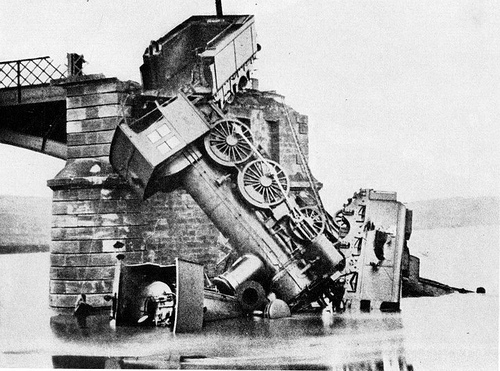Theo R Cwithin
I cast "Baconstorm!"
I agree that this...
For me a better analogy than "railroading" would be those little suck-em-up vacuum chute thingys at bank drive-thrus. Put the players in the capsule, hit the button, and *whoosh* it ends up in front of the teller (and never the cute one you want to talk to, either). If the system breaks down, the capsule simply never arrives. No wrecks, no explosions, no warping of reality. It just gets stuck, and you move on to a new campaign.
To my mind those are the worst kinds of "railroads" because they're not interesting at all, even in their inevitable collapse.
Imho the best wrought railroads are there if the players really need the tracks to guide them, but they're not really necessary for the train to keep on going:

... is bad. But at the same time, it's still vaguely interesting in that twisted rubber-necking way that all crashes interesting. Because, hey, look! It's a trainwreck, cool!
For me a better analogy than "railroading" would be those little suck-em-up vacuum chute thingys at bank drive-thrus. Put the players in the capsule, hit the button, and *whoosh* it ends up in front of the teller (and never the cute one you want to talk to, either). If the system breaks down, the capsule simply never arrives. No wrecks, no explosions, no warping of reality. It just gets stuck, and you move on to a new campaign.
To my mind those are the worst kinds of "railroads" because they're not interesting at all, even in their inevitable collapse.
Imho the best wrought railroads are there if the players really need the tracks to guide them, but they're not really necessary for the train to keep on going:




